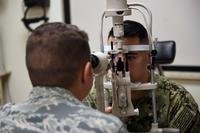The importance of college accreditation, especially “programmatic accreditation” (the accreditation that ensures a specific degree will open doors for your desired profession) has been a topic of many of my articles over the last year or so. The real issue is that a loophole in federal financial aid laws allows accredited schools to provide offer degree programs that are not recognized by state licensing or programmatic accreditation. This lack of licensing or programmatic accreditation can make it impossible for college graduate to actually work in the career field in which they hold a degree.
Some examples of programmatic accreditation include, physical therapy, paralegal, and nursing all require some form of programmatic accreditation.
Earlier this month Senator Jeff Merkley and Senators Barbara Mikulski (D-MD) and Tom Harkin (D-IA) introduced the Protecting Students from Worthless Degrees Act (S.3474). If passed the bill would require college degree programs to meet any state licensure requirements and programmatic accreditation. Programs that don’t meet the criteria would no longer be eligible for Pell Grants, Stafford Loans, GI Bill benefits, or DoD Tuition Assistance funds.
“Higher education should be a path to the American Dream, but that dream is shattered if when students graduate, they find that their degrees are worthless,” said Merkley. “A college that claims to prepare a student for a specific job should have the accreditation needed so that those degrees are actually worth something in the job market. It’s common sense to say that taxpayers have no place funding programs that hurt students more than they help.”
According to Sen. Merkley’s August 1st press release, schools that offer these non-accredited programs, often target veterans with GI Bill benefits. This makes it critically important for veterans and servicemembers to be very careful when selecting a school and even more so when selecting a degree program or career path that requires licensure or specific accreditation to get a job.
This bill is currently in committee.
Let your elected officials know how you feel about this legislation.



